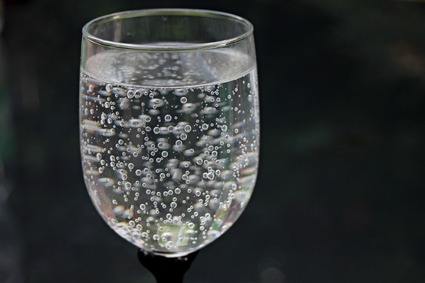
Sparkling or carbonated water is water infused with carbon dioxide. Some brands also sell the same water consisting of minerals and salt in a small amount. The refreshing carbonated water is often served at restaurants, clubs as an alternative to sugary drinks. The bubbly water creates carbonic acid and triggers a kind of pleasant, irritating sensation in the mouth. Thus, there have always been concerns regarding its adverse effects on the teeth.
It can be referred to as acidic instead of mere flavored water
The research work available on the American National Center for Biotechnology Information’s portal is sufficient enough to conclude that sparkling water is indeed harmful to the teeth.
It can damage the enamel by reducing its surface hardness. The carbonated water can also cause severe damage to the restored teeth by eroding areas filled with resin-modified glass ionomer, and other micro filled composites. Most importantly, it can damage the dentine as well.
Several researchers from around the world have tested sparkling water from various brands to understand their erosive abilities. These scientists found that carbonated water is as erosive or greater erosive for teeth than pure orange juice. Overall, researchers concluded that it wouldn’t be wrong to tag sparkling water as acidic.
Experienced dental care experts, including those at some of the top Roswell Dentists like TruCare Dentistry, urge people not to consider such products as a replacement for regular fluoridated water.
Tests On Teeth
Detailed tests (Vitro Dissolution) were conducted by scientists on teeth donated for research to understand how enamel reacts after being exposed to the acid found in sparkling waters.
The erosive potential of sparkling mineral water was tested with the help of hydroxyapatite. Regular water showed undetectable dissolution levels, while a greater dissolution was reported on teeth exposed to sparkling mineral waters. However, sparkling waters caused a lower level of erosion compared with the results for soft drinks. Scientists also observed that de-gassing the waters further brought the dissolution levels down.
Overall, the water’s impact on enamel also depends on the composition of various minerals in it according to researchers. Another worrying factor is the fact that soda can cause as much as 100 times the damage. So, one needs to stay away from soda as well.
The Cold And Bubbly Form Can Harm More
The Canadian McGill University’s researcher Ada McVean conducted a study to understand the erosive behavior of carbonated waters. As a part of this research, tests were performed on sparkling water samples from nine different brands that sell such products around the world. The pH level in these drinks was tested at room temperature and refrigerated temperature. As a part of the study, tests were conducted after decarbonating the water(s) as well. Ada McVean found that such a drink can be more erosive when it is bubbly and cold.
When it comes to marketing, advertisers often suggest it is not as erosive in comparison with sugary beverages. Thus, it is often considered an alternative to sugary drinks. However, it surely cannot prove to be a replacement for usual fluoridated water.
Often Referred To As Minimally Erosive
Though such types of waters do not contain sugar, their carbon factor is the primary concern for health and oral care experts.
Research work published by the American Dental Association Journal recently pointed out how sparkling water fared in comparison with drinks available in the market. Researchers conducted tests on as many as 400 different types of drinks, including sparkling waters, teas, fruit juices, sports drinks, and sodas to check their acidic levels.
Scientists labeled these drinks according to their erosive capabilities. Products that showed a pH level of 4.0 and above were tagged as minimally erosive. Those under 3.0 were labeled as extremely erosive, while items with pH levels between 3.0 and 3.99 were rated erosive. In these tests, sparkling waters from most brands were rated minimally erosive while sports drinks remained extremely damaging.
Sparkling waters also have other side effects besides dental ones. The fuller feeling caused due to the bubbles can result in indigestion. Plus, it can prove to be disastrous if used by sportspersons after exercising for hydration.
Some product promotional articles published by newspapers and websites also urge consumers to drink it with a straw for avoiding contact with teeth. Companies that sell sparkling water prefer focusing on the fact that their product is lesser acidic compared to sugary drinks. But, no one can deny that it damages the teeth. The factor that gives it a tangy taste and bright color creates more harm. It can turn more erosive if mixed with grapefruit, or lemon. Please reach out to the best dentist in Roswell to learn the effects of diet on oral health at TruCare dentistry.
If you often feel irritation in your teeth after drinking certain beverages, you should consider getting in touch with TruCare Dentistry. They are one of the best when it comes to Roswell Dental Care.
